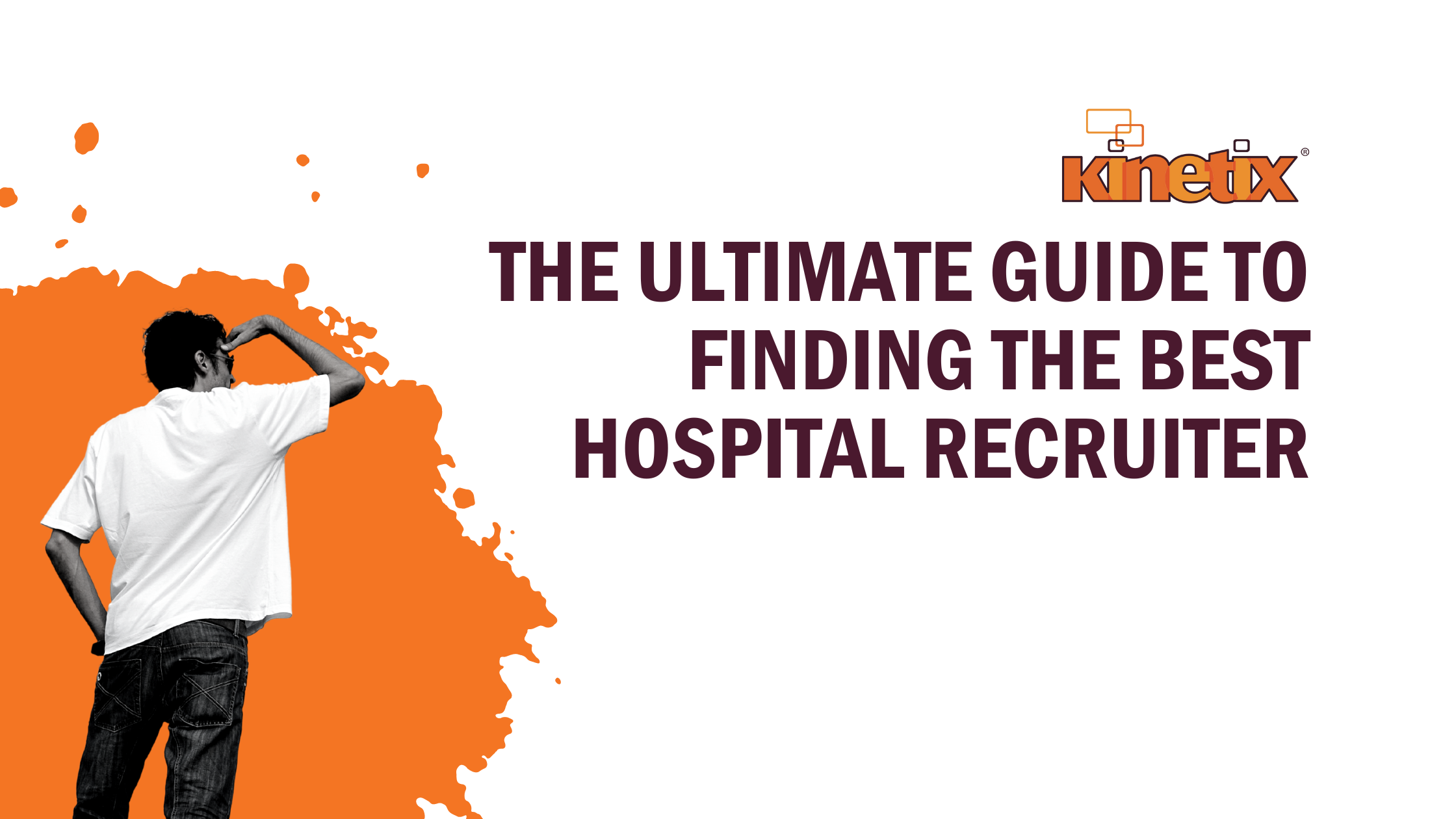
Table of Contents
- What is a Hospital Recruiter?
- What is Their Role?
- Qualities of Effective Hospital Recruiters
- How to Evaluate Potential Recruiters
- The Impact of RPO on Healthcare Recruiting
- Hospital Recruiting Partnerships
Finding the right talent can make or break an organization, especially in the healthcare sector. The role of hospital recruiters is, therefore, critical.
This article is the ultimate guide to understanding, locating, and working with the best hospital recruiters.
Understanding Hospital Recruitment
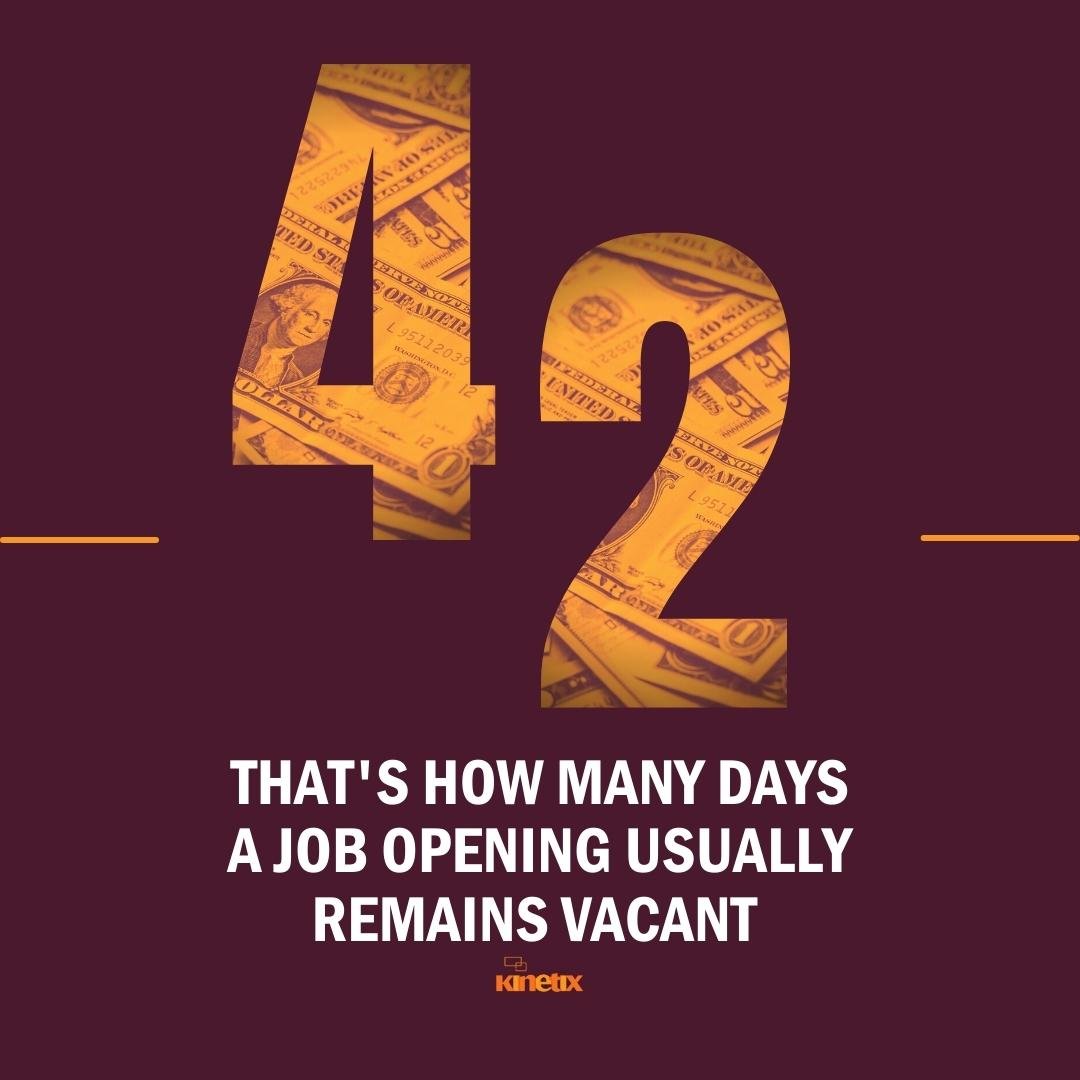
What is a Hospital Recruiter?
A hospital recruiter specializes in hiring healthcare staff, such as doctors, nurses, and technicians. Their role is unique and differs significantly from general recruiters due to the specialized knowledge and skill set required in the healthcare sector.
The Demand Behind Hospital Recruiters
The high demand for hospital recruiters stems from the complexity and dynamism of the healthcare industry, the critical need for highly qualified professionals, and the ongoing challenges in talent retention and adaptation to new technologies.
- Specialized Knowledge: The healthcare industry requires highly specialized professionals with a depth of education and training. It's crucial that new hires not only possess the right qualifications but also align with the culture and values of the hospital. With their industry-specific knowledge, hospital recruiters are uniquely equipped to source and evaluate potential candidates for these roles.
- High Volume of Roles: Hospitals are large organizations with various roles to fill, ranging from physicians, nurses, and technicians, to administrative and support staff. Meeting this constant demand for talent requires a robust recruitment strategy, for which hospital recruiters are indispensable.
- Regulatory Compliance: The healthcare industry is heavily regulated, with stringent hiring rules and guidelines to ensure the quality and safety of patient care. Hospital recruiters understand these rules and help hospitals navigate them during hiring.
- Retaining Talent: With high levels of burnout and staff turnover in the healthcare industry, hospital recruiters play a key role in hiring the right talent and devising strategies to retain them.
- Changing Landscape: Factors like the aging population, chronic disease prevalence, and the after-effects of the COVID-19 pandemic have increased the demand for healthcare professionals. This further amplifies the need for skilled hospital recruiters.
- Evolution of Technology: With the evolution of technology in the healthcare sector, there's a growing need for professionals who can adapt to new tools and techniques. Hospital recruiters help find such adaptable and tech-savvy professionals.
The Role of Hospital Recruiters
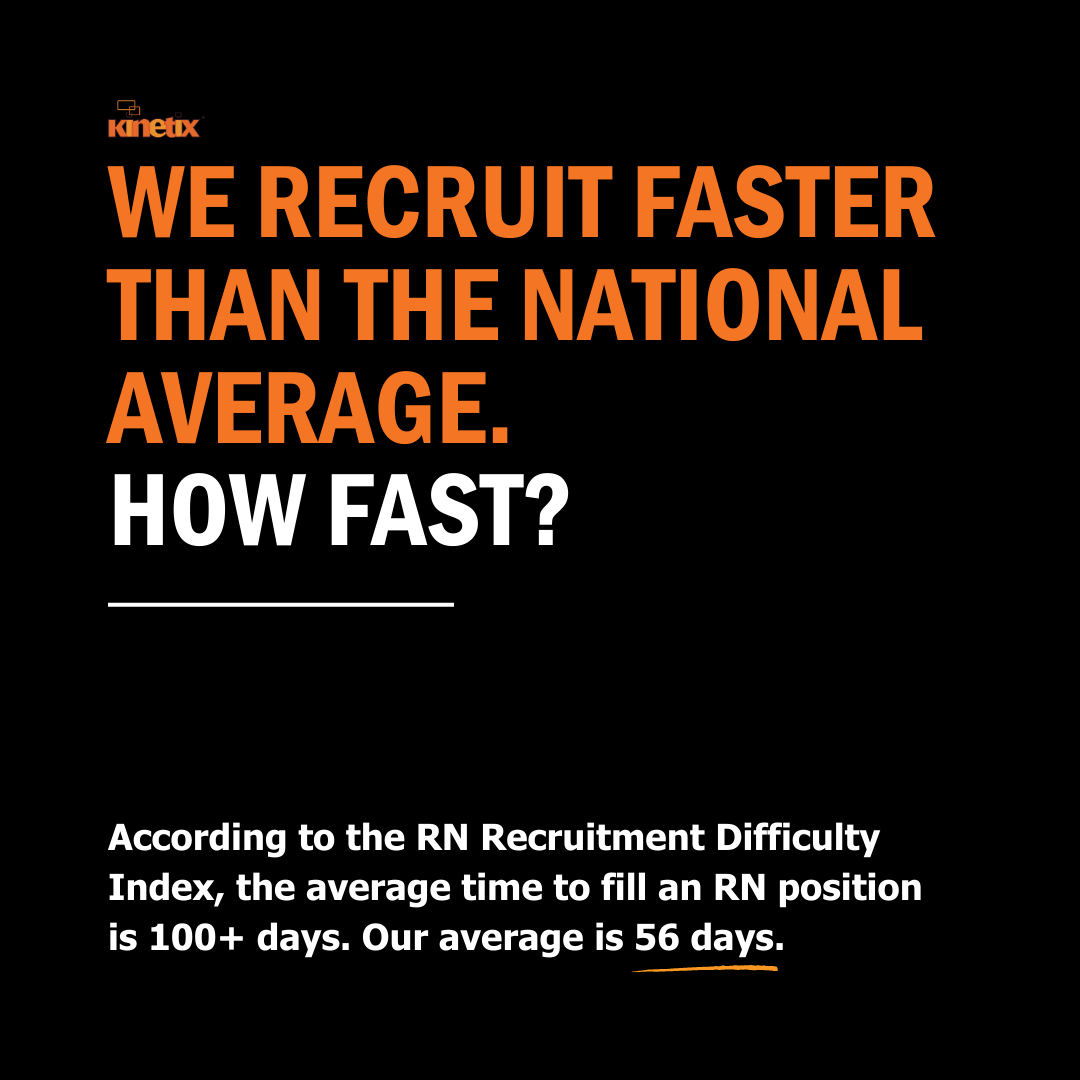
Hospital recruiters serve as the vital link between job seekers and healthcare institutions. They go beyond merely filling vacancies.
Their role encompasses understanding the needs of both parties, finding the right match, and facilitating a smooth transition.
- Understanding Job Requirements: They must comprehend the complex requirements of different healthcare roles, ensuring they can identify suitable candidates.
- Screening and Shortlisting: Recruiters sift through hundreds, sometimes thousands, of applications to identify potential candidates.
- Coordinating Interviews: Recruiters manage the logistics regarding interviews between candidates and hospital representatives.
- Onboarding: After a candidate is selected, recruiters also ensure smooth onboarding.
Key Qualities of Effective Hospital Recruiters
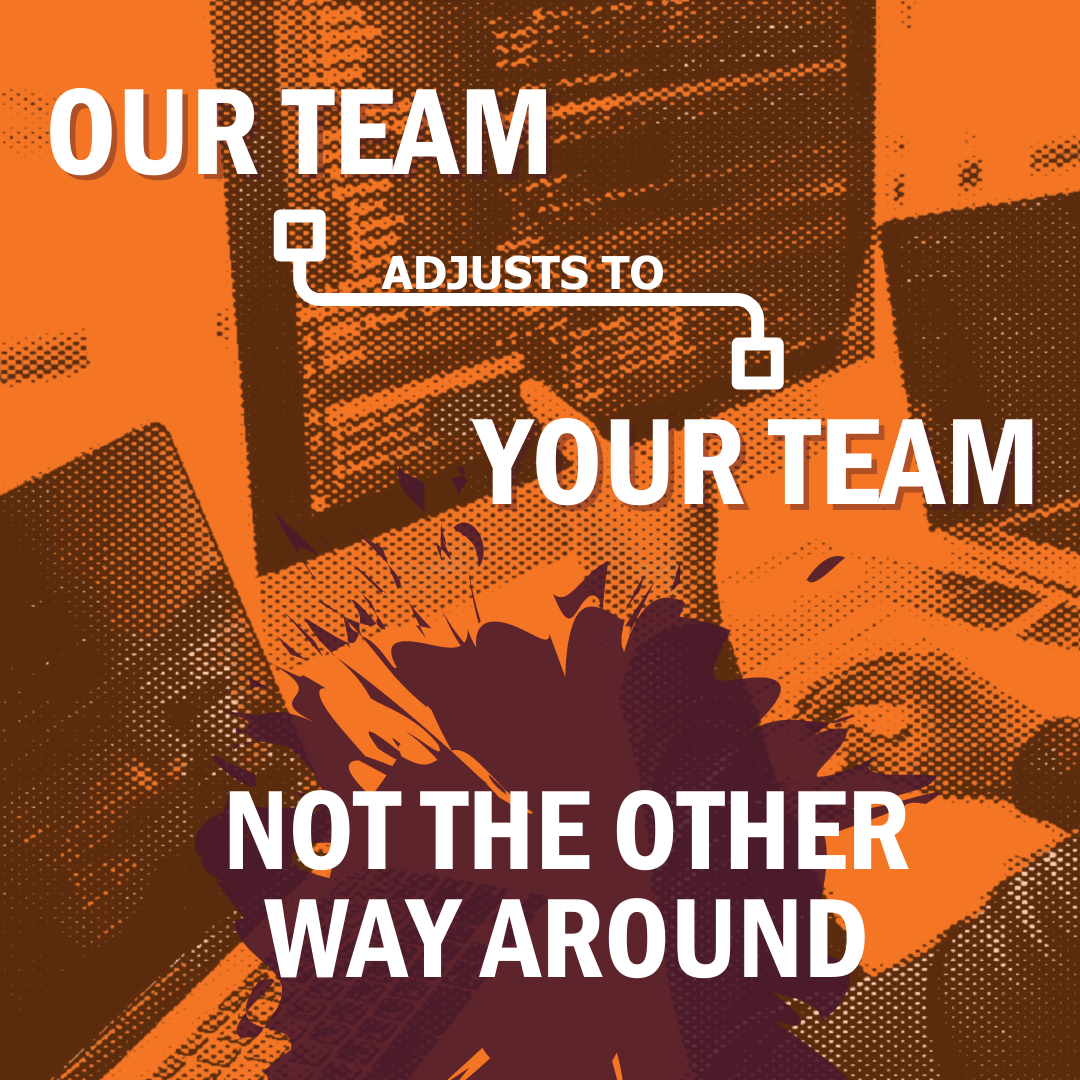
Not all recruiters are created equal, especially regarding the intricacies of the healthcare industry. The effectiveness of a hospital recruiter can significantly influence the quality of hires and, consequently, patient care outcomes.
This section highlights the vital qualities that set effective hospital recruiters apart, serving as a roadmap for institutions seeking to identify the best recruiting partners.
Healthcare Industry Knowledge
A deep understanding of the healthcare industry is a must.
Recruiters should be familiar with various medical professions, certifications, medical jargon, and trending healthcare issues. They should be aware of the challenges faced by healthcare professionals and the values that drive them.
This understanding enables them to identify candidates who are qualified and passionate about their roles.
Interpersonal and Communication Skills
An effective hospital recruiter must build relationships with job seekers and hiring organizations. They need to empathize with the challenges faced by healthcare professionals and communicate effectively with diverse groups of people.
Their role involves negotiating contracts, pitching opportunities to candidates, and mediating between hospitals and candidates, all of which require excellent communication skills.
Critical Thinking and Problem-Solving Abilities
Recruitment can be challenging, from sourcing hard-to-find talent to dealing with last-minute job offer rejections. Recruiters need to think on their feet and devise solutions quickly.
They should be able to analyze situations from different perspectives and make decisions that benefit both the candidate and the hospital.
Ethics and Confidentiality Management
Recruiters handle sensitive information daily. They must maintain the highest professionalism and integrity to keep private information confidential. In addition, they should be committed to ethical hiring practices, promoting fairness and equality.
Adaptability
The healthcare industry constantly evolves with new technologies, treatments, and regulations. Therefore, effective hospital recruiters must be adaptable, staying current with industry trends and altering their recruitment strategies as needed.
Patience and Persistence
Sometimes, the right candidate for a role may not be immediately available, and the recruitment process can take longer than expected.
Effective recruiters demonstrate patience and persistence in these situations, continuing to search for the perfect fit no matter how long it takes.
Organizational Skills
Recruiters often juggle multiple roles simultaneously, coordinating with different hospitals and candidates. Excellent organizational skills, including attention to detail and time management, are essential to keep everything running smoothly.
The Selection Process: How to Evaluate a Hospital Recruiter

Choosing the right hospital recruiter is crucial as it significantly impacts the quality of your healthcare staff and overall patient care. Therefore, it's important to undertake a thorough evaluation process.
This section will guide you in critically assessing prospective hospital recruiters, ensuring you partner with a professional who understands your needs and can deliver the best talent for your institution.
Assess Their Knowledge
Start by assessing the recruiter's understanding of the healthcare sector.
Discuss current trends, challenges, and opportunities in healthcare.
Ask them about the roles they have filled in the past, their understanding of specific medical roles and certifications, and their approach to sourcing candidates.
Their responses will help you gauge their knowledge, depth and experience in healthcare recruitment.
Evaluate Their Track Record
A recruiter's past performance can provide valuable insight into their capabilities. Ask for data on their placement success rate, the types of roles they have filled, and the kind of healthcare organizations they have worked with.
Also, find out how long their placements typically stay in their roles. This will give you an idea about their ability to find candidates who are not just qualified, but also a good long-term fit for the organization.
Discuss Their Recruitment Strategy
Understanding a recruiter's approach to finding, screening, and placing candidates can provide a glimpse into their professionalism and efficacy.
Discuss their sourcing methods, evaluation criteria, and how they handle challenges such as difficult-to-fill roles or high-volume hiring.
Check References and Reviews
Request references from past clients and make sure to follow up with them.
Ask about their satisfaction with the recruiter's services, strengths, improvement areas, and whether they would hire them again.
Online reviews and ratings can also provide valuable insight into a recruiter's reputation.
Determine Cultural Fit
A recruiter should understand the skills and qualifications necessary for a role and appreciate your hospital's culture and values.
They should be able to identify candidates who will be a good cultural fit, ensuring a more harmonious working environment and less employee turnover.
Discuss your organization's mission, values, and work environment with the recruiter and assess their ability to comprehend and align with them.
Consider Their Communication Skills
Effective communication is key to a successful partnership with a recruiter. Evaluate their communication style, responsiveness, and ability to provide clear, concise information.
A good recruiter will keep you updated about progress, listen to your concerns, and be open to feedback.
The Impact of RPO Services on Hospital Recruiting
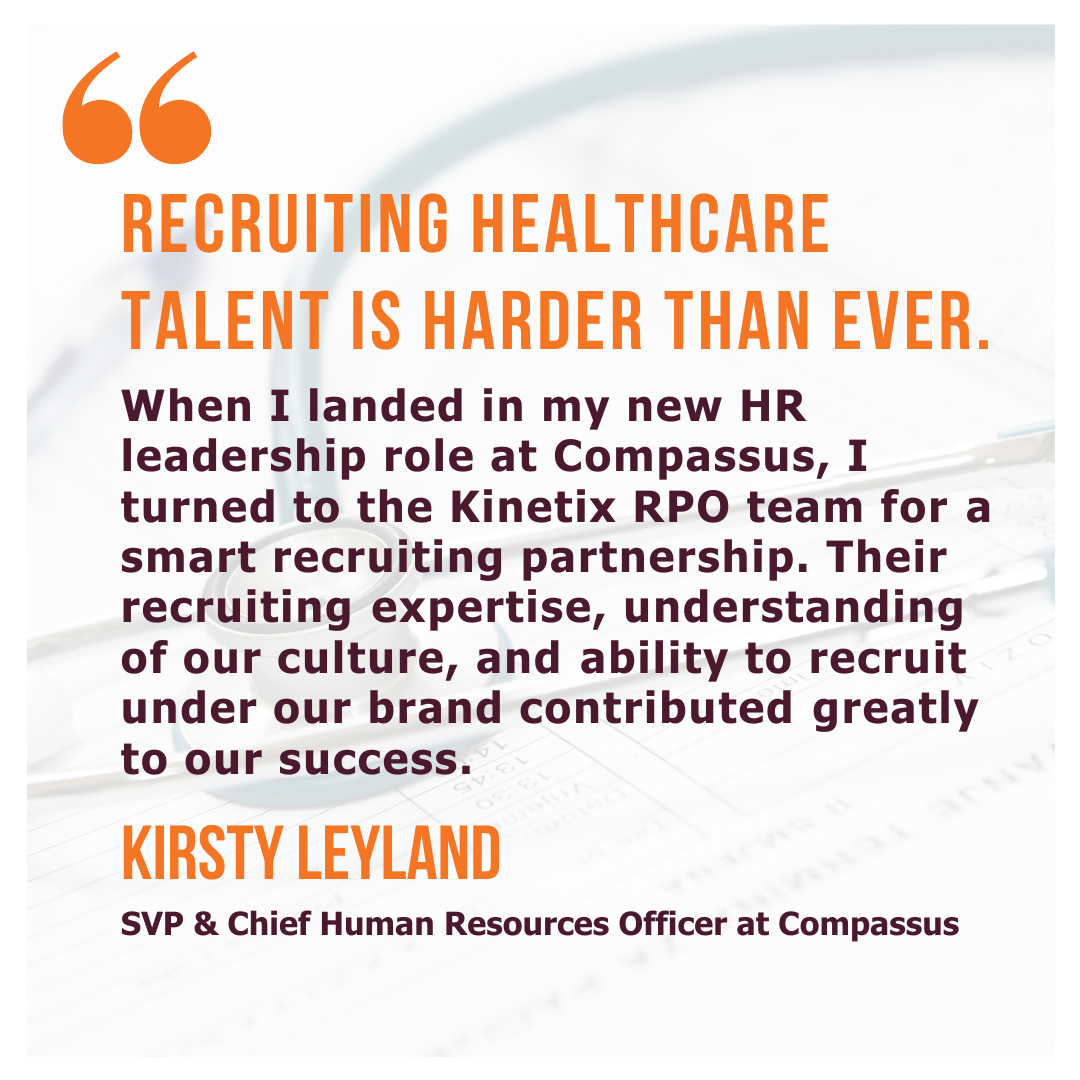
What are RPO Services in the Context of Healthcare?
Recruitment Process Outsourcing (RPO) in healthcare refers to delegating all or part of an organization's recruitment functions to a specialized external service provider.
This provider manages the end-to-end recruitment process, which typically includes job posting, sourcing candidates, screening and selection, coordinating interviews, offer management, and onboarding.
RPO services in healthcare are particularly specialized due to the industry's unique requirements.
Healthcare RPO providers must deeply understand clinical roles, requisite certifications and skills, and industry-specific challenges and trends. Their role often extends beyond traditional recruitment to address aspects like credential verification, background checks, compliance with healthcare regulations, and ensuring a cultural fit within the healthcare organization.
By partnering with an RPO provider, healthcare organizations aim to improve the efficiency and effectiveness of their recruitment processes, access specialized talent pools, reduce hiring costs, and free up their internal resources to focus on core healthcare delivery.
8 Ways RPO Services Benefit Hospital Recruiting

- Scalability: Healthcare RPO provides the ability to scale up or down based on hiring needs, which is especially crucial for hospitals that experience fluctuating demand due to seasonality, growth phases, or unexpected events like a pandemic.
- Cost-Effectiveness: RPO can reduce hiring costs by streamlining the recruitment process, leveraging economies of scale, reducing time-to-fill, and improving the quality of hires, thereby lowering turnover and associated replacement costs.
- Access to Expertise and Advanced Tools: RPO providers typically have access to advanced recruitment technologies, sophisticated applicant tracking systems (ATS), and comprehensive candidate databases. They also bring industry-specific knowledge and recruiting expertise, helping hospitals find the right talent more efficiently.
- Quality of Hires: With a dedicated focus on recruitment, RPO providers can improve the quality of hires by implementing systematic candidate assessment and selection methods. They can also ensure cultural fit, which is crucial in a team-oriented environment like a hospital.
- Compliance: Healthcare is a heavily regulated industry. RPO providers with expertise in healthcare can help hospitals navigate complex labor laws, equal employment opportunity (EEO) considerations, and other compliance issues related to hiring.
- Employer Branding: RPO providers can help improve a hospital's employer branding, creating a more attractive image to prospective candidates. A stronger employer brand can draw higher-quality applicants and improve retention rates.
- Focus on Core Functions: By outsourcing the recruitment process, hospital administrators and HR staff can focus on their core functions, improving overall operational efficiency.
- Data and Analytics: RPO providers can offer meaningful data and analytics related to the hiring process, helping hospitals make data-driven decisions to improve their recruitment strategies.
Elevate Your Healthcare Recruiting Partnerships with Kinetix
When it comes to hospital recruitment, the right partnerships can make all the difference. High-quality patient care begins with hiring the right team, and that's where Kinetix RPO services come in.
Our deep industry knowledge, innovative recruitment strategies, and technologies ensure you attract, hire, and retain the top healthcare talent your organization needs to succeed.
If you're looking to elevate your hospital's recruitment process and secure the best talent for your team, Kinetix is the RPO partner you need. Contact us today to discuss how our services can help transform your hospital's recruitment strategy and drive better patient care outcomes. Don't just hire – hire right, with Kinetix.

